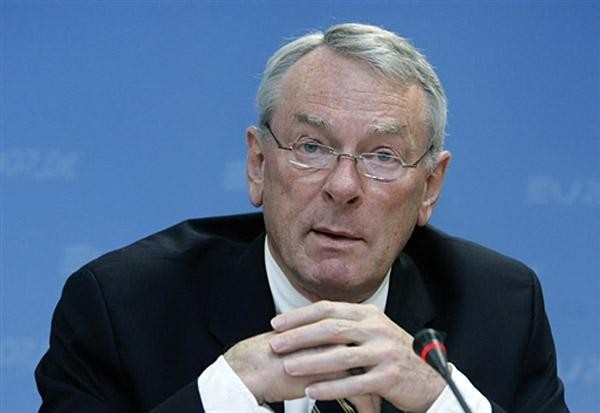Pound criticises cycling's anti-doping efforts
Former World Anti-Doping Agency (WADA) president Richard Pound has again criticised the efforts made...
The latest race content, interviews, features, reviews and expert buying guides, direct to your inbox!
You are now subscribed
Your newsletter sign-up was successful

Former World Anti-Doping Agency (WADA) president Richard Pound has again criticised the efforts made in the world of competitive cycling in the fight against doping. Speaking to German magazine Spiegel, Pound deplored the situations of German cyclists Jörg Jaksche and Patrick Sinkewitz, who told all about their mistakes but nevertheless found it difficult to come back to the sport. Jaksche did not find a new team for 2009, and Sinkewitz had to settle for a lower profile team from the Czech Republic, PSK Whirlpool-Author.
"The fact that Jaksche was unable to get a job again is a tragedy," said Pound. "It says everything about the sport they were involved in. What would have been normal is for the cyclists, team managers and officials to stand up for them. The fact that they are being branded as traitors shows that competitive cycling has no enthusiasm for doing anything about doping." Indeed, other pros who were caught cheating but maintained their innocence - or confessed but did not reveal their networks - have readily been given new contracts after sitting out their ban.
The Canadian, who led WADA from 1999 to 2007, moreover thought that the German public TV cancellation of the 2009 Tour de France Live broadcast was "a strong signal. If I were the head of a sport faced with that I would tell my riders and colleagues: 'Look, if we don't solve the doping problem, we're all going down the drain together. We can make the stages shorter. We can introduce rest days. Something has got to happen, otherwise we're finished.'"
Still optimistic about the fight against doping ultimately leading to an almost clean sport, Pound thinks that it is all about changing the athletes' attitudes rather than reprimanding doping as a crime. "When I got my driving license, cars with seatbelts didn’t exist," he continued, citing an example. "Then wearing a seatbelt was voluntary, and eventually it became mandatory. Now, you have to pay a fine if you don't wear one. But I don't put on my seatbelt nowadays to avoid being punished; I put on my seatbelt because I have understood that it is dangerous not to. And I attribute that much common sense to athletes too. It’s a question of changing their attitude. Perhaps we'll be there in 15 years."
As for the retroactive testing of the Beijing Olympic Games' samples on the presence of third-generation EPO, CERA, Pound did not think much would come out of the results. "CERA was used during the Tour de France, so I wouldn't rule out its having been used at the Games too," he said. "However since the Tour, since they caught Ricardo Ricco, the athletes know that we can detect CERA. So anyone who took it in Beijing must have an IQ below room temperature."
The latest race content, interviews, features, reviews and expert buying guides, direct to your inbox!
